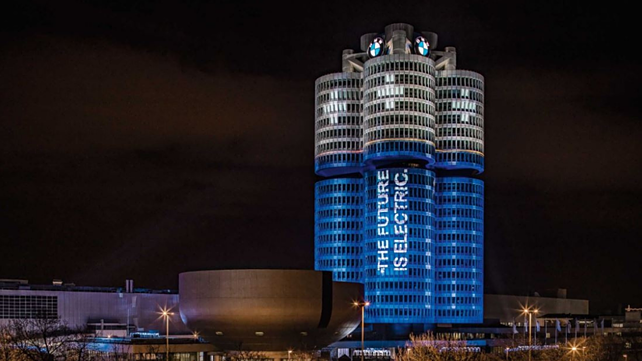
In a bid to support ramping up of the European cell and battery value chain, the BMW Group is accelerating its development for battery technology. Towards this, Oliver Zipse, Chairman of the Board of Management of BMW AG, today received a grant decision from the Federal Minister of Economics and Energy, Peter Altmaier, as well as from the Bavarian Minister of State for Economic Affairs, Regional Development and Energy, Hubert Aiwanger; this will support BMW Group's battery projects within the framework of the battery IPCEI (Important Project of Common European Interest).
The group believes that high-performance and sustainable energy storage systems are the key success factor for the individual mobility of the future. Therefore, the development of highly innovative and sustainable battery cells is one key element of a high-performance European cell and battery value chain.
This aspiration is reflected in the Neue Klasse, which the BMW Group first presented at its annual conference in March. This new generation of vehicles, which will be launched by the middle of this decade, will be uncompromisingly electric, digital, circular – and focused on all-electric drivetrains.
Zipse said, 'With the Neue Klasse, we will make a big leap in technology in electric drive. We want to significantly increase the energy density of the cells and reduce the costs of material use and production at the same time. We will also significantly reduce the use of primary material to ensure a truly 'green' battery.'
Frank Weber, Member of the Board of Management of BMW AG, Development, said, 'The greenest electric car in the world will be a BMW – sustainable from the initial idea to recycling after its use phase. We are developing the battery cell of the future: it will be powerful, safe, cost-effective, and recyclable - from material selection to recyclability after the use in the vehicle. All of this will be created in a European value chain. We are doing intensive research on solid-state battery technology. By the end of the decade, we will be implementing an automotive-compatible solid-state battery for series production. We plan to show a first demonstrator vehicle featuring this technology well before 2025.'
Thanks to intelligent vehicle architectures and a highly flexible production network, the BMW Group will have around a dozen all-electric models on the road as early as 2023. In addition to the BMW i3, MINI Cooper SE and BMW iX3, which are already on the market, two key innovation drivers, the BMW i4 and the BMW iX will be put on the road this year– the BMW i4 even three months earlier than originally planned.
All-electric versions of the high-volume BMW 5 Series and the BMW X1 will follow in the coming years. In addition, there will be an all-electric BMW 7 Series as well as the successor to the MINI Countryman and other models. As early as 2023, the BMW Group will have at least one all-electric model on the road in around 90% of its current market segments.
By 2025, the BMW Group will increase sales of all-electric models by an average of significantly more than 50% per year – more than ten times more than in 2020. In total, the company will have delivered around two million all-electric vehicles to customers by the end of 2025.